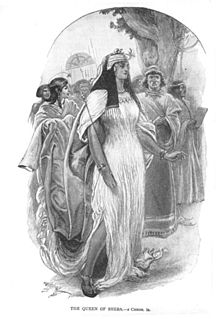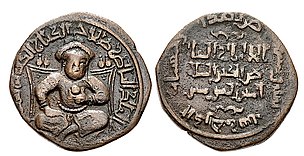 W
WAl‐Malik Al‐Ashraf Umar Ibn Yūsuf Ibn Umar Ibn Alī Ibn Rasul, also as Umar Ibn Yusuf was the third Rasulid sultan and also an Arab mathematician, astronomer and physician.
 W
WArwa Al-Sulayhi, full name Arwā bint Aḥmad ibn Muḥammad ibn Jaʿfar ibn Mūsā Aṣ-Ṣulayḥī was a long-reigning ruler of Yemen, firstly as the co-ruler of her first two husbands and then as sole ruler, from 1067 until her death in 1138. She was the last of the rulers of the Sulayhid Dynasty and was also the first woman to be accorded the prestigious title of Hujjah in the Isma'ili branch of Shia Islam, signifying her as the closest living image of God's will in her lifetime, in the Ismaili doctrine. She is popularly referred to as As-Sayyidah Al-Ḥurrah, Al-Malikah Al-Ḥurrah (Arabic: ٱلْمَلِكَة ٱلْحُرَّة or Al-Ḥurratul-Malikah, and Malikat Sabaʾ Aṣ-Ṣaghīrah. She is known by the name Arwa. However, this name does not have any historical source and all historical sources name her "Sayyidah bint Ahmed".
 W
WAsma Bint Shihab al-Sulayhiyya was the queen and co-ruler of Yemen in co-regency with her cousin and spouse, Ali al-Sulayhi, and later her son Ahmad al-Mukkaram, and daughter-in-law, Arwa al-Sulayhi, from 1047 until 1087. Her full title as sovereign, "al-Sayyida al-Hurrat-ul" translates to "The noble lady who is free and independent, the woman sovereign who bows to no superior authority". As female sovereign, Asma bint Shihab has an almost unique position in history: though there were more female monarchs in the international Muslim world, Asma bint Shihab and Arwa al-Sulayhi were the only female monarchs in the Muslim Arab world to have had the khutba proclaimed in their name in the mosques as sovereigns.
 W
WKaleb, also known as Saint Elesbaan, was King of Aksum, which was situated in modern-day Eritrea and Ethiopia.
 W
WThe Queen of Sheba is a figure first mentioned in the Hebrew Bible. In the original story, she brings a caravan of valuable gifts for the Israelite King Solomon. This account has undergone extensive Jewish, Islamic and Ethiopian elaborations, and has become the subject of one of the most widespread and fertile cycles of legends in the Middle East.
 W
WAl-Nasir Salah al-Din Yusuf ibn Ayyub, better known simply as Salah ad-Din or Saladin, was a Sunni Muslim Kurd and the first sultan of Egypt and Syria and founder of the Ayyubid dynasty. Saladin led the Muslim military campaign against the Crusader states in the Levant. At the height of his power, his sultanate spanned Egypt, Syria, the Jazira, the Hejaz, Yemen, parts of western North Africa, and Nubia.
 W
WAbū Murra Sayf ibn Dhī Yazan al-Ḥimyarī was a semi-legendary Himyarite king of Yemen who lived between 516 and 578 CE, known for ending Aksumite rule over Southern Arabia with the help of the Sassanid Empire.
 W
WSultan Abdullah bin Omar Al-Quaiti was the founder of Qu'aiti Sultanate in Hadhramaut, Yemen.